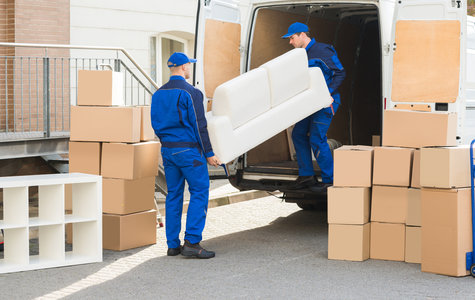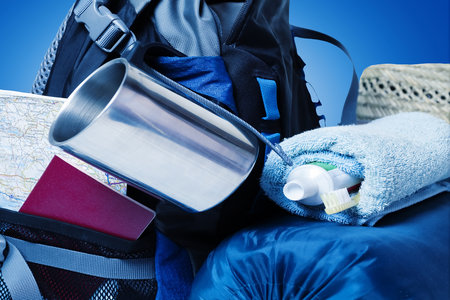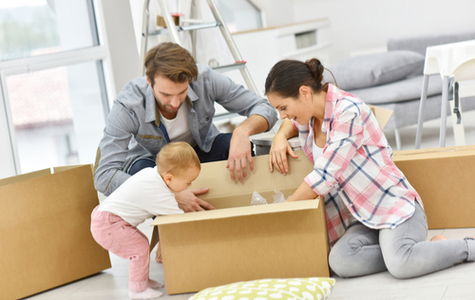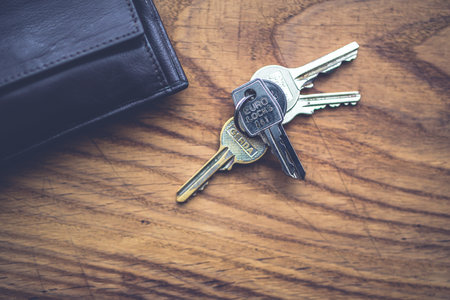
Moving far away from your current home might seem both exciting and daunting. You may also be unfamiliar with your new location, so it could take a few weeks for you to find your feet.
Moving long distance is very different to moving from one side of a town to another, so to help, we’ve got some advice:1. Do your homework
To help with your transition, you should research local amenities and find out about the community you’re going to be joining. You might want to know where your nearest shops and takeaways are from the outset, and it could be wise toregister with a doctor and dentist as soon as possible.
If you have children, it’s usually best to research local schools weeks or months in advance. Your children could be apprehensive about leaving their old school friends behind, but talking about how exciting and fantastic their new school is, showing them pictures and taking them along to visit in person may help smooth things over.

2. Book your removals company
As soon as you have the date of your move confirmed you can book your removals company. Using a removals company might cost more than hiring a van yourself and doing shuttle runs, but it could save you a lot of time and stress. If you’re going to be moving overseas, you may need to book a container and consider placing some items in a storage unit.
Your removals company may offer a packing service, but you can do all the packing yourself if you prefer. If this is the case, start packing as early as you and try to declutter as you go. Label your boxes well as this can help at the other end.

Packing up a 3 – 4 bedroomed house requires on average:
- 12 small boxes
- 16 medium boxes
- 10 large boxes
- 1 roll of tape
- 20 meters of bubble wrap

It can be a good idea to keep to one box of essentials and a moving in box which contains all the cleaning materials you might need to give your new home the once over when you arrive. These two boxes could be packed into the removals lorry last or travel in your car with you, so they’re easy to find later.
Boxes are often provided by removals companies along with tape, clothes hangers and wrapping material to help keep belongings safe while they are in transit. Find out from them before you go ahead and buy any, so that you aren’t spending more than you have to.


3. Prepare everyone for the journey
As well as making sure your belongings are packed up and ready for the off in the removals lorry, you need to make sure you’re comfortable and ready for the long journey ahead. You could take snacks and drinks with you, even if you’re planning on taking comfort breaks.
If you have children, making sure they’re entertained could be the key to a peaceful trip, and you might want to pack plenty of books, games and gadgets for them.

If you have pets, they’ll probably be travelling in your car with you, so you’ll need to make sure they have their own space. If you have a dog, you could buy a dog harness to attach to a seat belt. Cats, rabbits and other pets can be more difficult to transport as they might not be used to travelling in a car, so you could do some short practice runs to prepare them for moving day.
If you choose to use a pet carrier, you should make sure that it’s well-ventilated and large enough for your pet to move around in and look out of. Having your pets’ favourite toys and bedding inside could help reduce their stress-levels so that hopefully they’ll feel relaxed enough to fall asleep.
You may want to pack their pet food, bowls and other essentials in your car with you and make a note to change their microchip and insurance details so that they’re registered to your new address.


4. Arrange when you’ll pick up the keys
There’s no point travelling all that way only to realise that you haven’t arranged to pick up the keys at a suitable time. Arrange timings with the existing owner (if moving into an older home) or the site manager (when moving into a home on a new development) and make sure you time it right so that you’re not waiting around for longer than necessary.
Most of your belongings will be travelling separately so you will need to speak to the removals company about when they’ll be arriving. Do you want to arrive before them or are you happy for them to pick up the keys and start moving your belongings in before you arrive? You might even want to arrive at the same time, travelling in a convoy. Decide in the weeks and days before the move to ensure everything runs as smoothly as possible, alleviating any avoidable stress.

5. Consider an overnight stay
Depending on how far away you’re moving, you may want to consider splitting your journey and staying overnight somewhere before heading on to your new home.
Alternatively, if you want to make sure you reach your final destination in one run, you could book into a nearby hotel for the first night so that you don’t have to worry about getting your beds set up, sorting out the bathrooms and kitchen.


6. Think about your pets
If you have pets, you’ll need to think about their welfare and understand how to keep them comfortable during the journey. If your car is too full, it might be best to leave them with a sitter (perhaps a friend, family member or professional pet sitter) and then go back to pick them up the next day.
Once you arrive at your new home with your pet, whether you have a dog or a cat, you should have already prepared an area for them with food, water and toys that’s away from all the commotion of people –often strangers – moving items around.

7. Be prepared to compromise
It’s unlikely that you’ll be able to have everything looking as you want it in the first few days of moving in, so try not to worry about it. Unpack the essential boxes first as they’re the most important and then move onto the rest.
You may find that some items of furniture don’t look right in your new home, perhaps they’re too big, or too small, so you might decide to sell them at a later date and buy new items.

You might not be able to fit curtains in each room on the first day. If you can’t, choose the rooms where you’ll be spending most time, which will most likely be bedrooms and living rooms, so that you can live and sleep comfortably from the outset.
To make your new home liveable as quickly as possible, you could prioritise getting your bedrooms, kitchen and bathrooms ready first. Nothing beats collapsing into your bed on the first night in your new home, and after a long-distance move, you should be so tired that you fall asleep as soon as your head hits the pillow!




